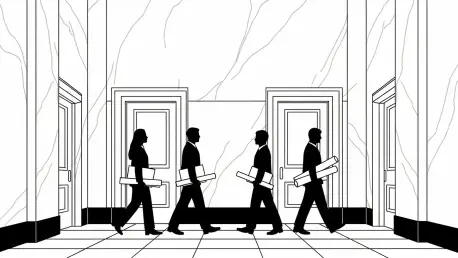A five-year fight over hurricane damage at a Pensacola waterfront property reached a new pitch as a Florida property owners association accused a quartet of surplus lines carriers of turning a straightforward storm loss into a slog of shifting theories, procedural stalemates, and late-stage course corrections that ultimately yielded a far higher payout through appraisal than through the insurers’ own adjustments. The case centers on September 2020 wind damage at the Eden condominium, where the association says the carriers first acknowledged widespread covered loss, then pivoted to exclusion-based defenses that stalled resolution. The allegations landed in federal court on November 17, naming General Security Indemnity Company of Arizona, HDI Global Specialty SE, StarStone Specialty Insurance Company, and QBE Specialty Insurance Company as defendants in a statutory bad-faith suit under Florida law.
How The Claim Unraveled
According to the complaint, the claims story began with alignment and ended with divergence. In November 2020, the insurers’ engineer, Thornton Tomasetti, delivered a report acknowledging broad Hurricane Sally damage across the coastal property. Initial payments followed—about $2.8 million—without reliance on exclusions or alternative causes. However, by early 2021, subsequent reports from the same consultant introduced pre-existing conditions and non-wind factors. A September 2021 update leaned further into exclusionary theories. By October 2021, partial denials arrived, despite the earlier recognition of hurricane-driven loss, setting up a valuation and causation dispute that would define the next several years.
Eden says the claims handling compounded the friction. The lead adjuster, Anthony DeCesare, allegedly never attended any of the three site inspections. Building consultant Young & Associates was engaged alongside the engineers, and Eden contends both vendors produced outcome-driven work that narrowed scope and depressed pricing. The association also points to documentation hurdles. It says the carriers did not provide blank proof-of-loss forms required by the policy. When Eden submitted sworn statements in April 2022 detailing more than $23 million in damage, the insurers rejected them as unsolicited. Those exchanges, the suit argues, undercut the collaborative investigation that Florida standards contemplate.
Appraisal, Payment, And Bad-Faith Allegations
With the stalemate deepening, Eden demanded appraisal in June 2022. The association alleges the carriers waited four months to name an appraiser and resisted agreement on an umpire, requiring court involvement to move the process forward. The panel did not finalize its work until January 2025, when it issued an award of $21,017,380.97—far closer to Eden’s claimed loss than to the insurers’ interim payments. By then, cumulative payments totaled roughly $7.6 million over prior years. The carriers paid the appraisal award after it issued, but the association argues the timeline underscored a material underpayment and unnecessary delay that appraisal had to correct rather than refine.
The lawsuit filed November 17 alleged statutory bad faith and unfair claim practices, including failure to adopt and implement proper standards for investigation and failure to communicate promptly. It also recounted a mediation request by the insurers on the bad-faith issues in June, followed by the carriers filing their own lawsuit two days before the scheduled session without notifying Eden, which the complaint framed as a forum or timing tactic. No court had ruled on the merits. For policyholders and carriers alike, the next steps were expected to turn on discovery into the consultants’ evolving analyses, communications about proof-of-loss handling, and the rationale for delays in appraisal logistics, because those records offered the clearest path to resolving whether this dispute reflected evolving evidence or an avoidable prolonging of payment.









